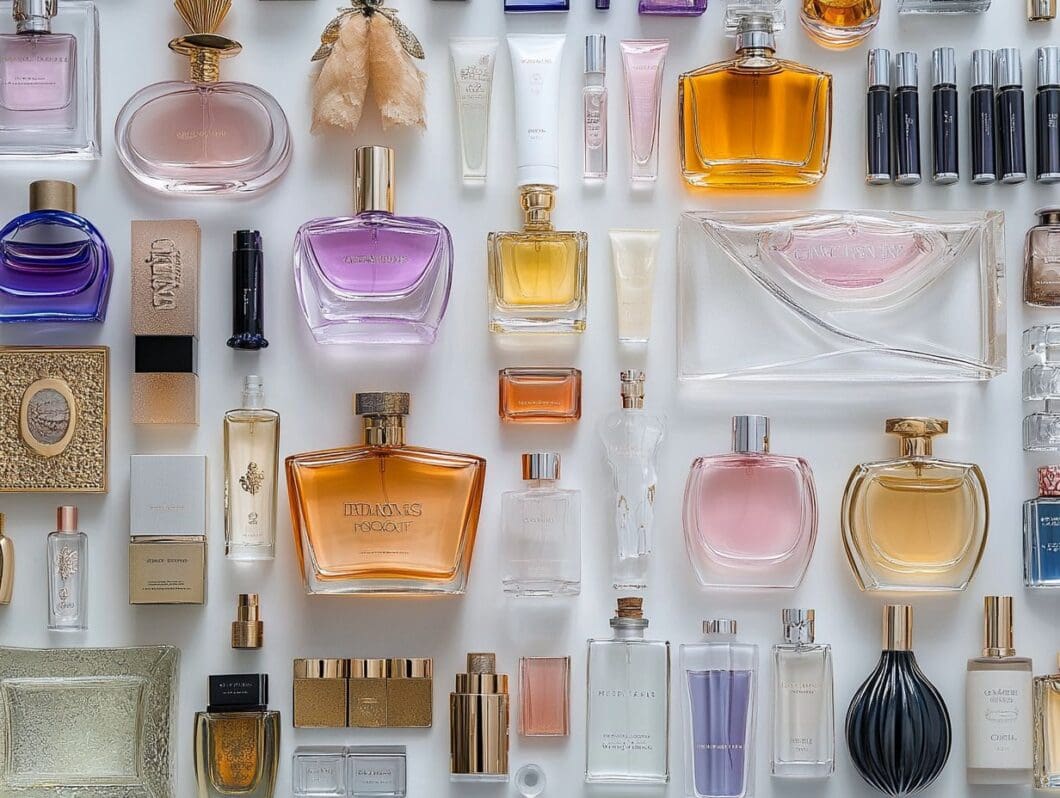Perfume is more than just a pleasant scent; it’s an expression of personality and mood.
Wearing fragrance comes with its own set of unwritten rules—what’s appropriate in one setting might be a faux pas in another.
This piece explores the essential dos and don’ts of perfume etiquette, offering insights on proper application, selecting the right scent for various occasions, and being considerate of others.
Whether you’re heading to work or a social gathering, mastering these guidelines will ensure you leave a lasting impression for all the right reasons.
Key Takeaways:
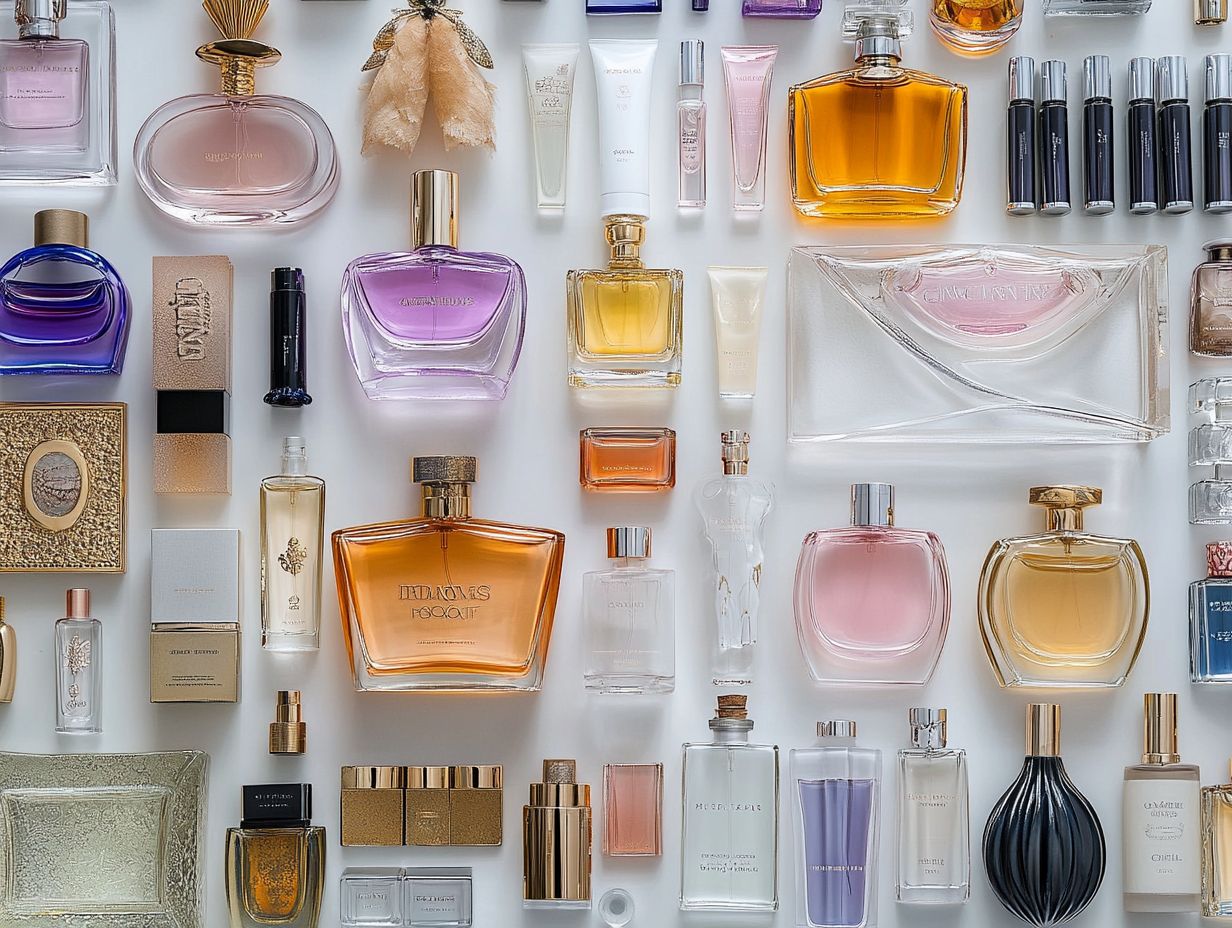
Understanding Perfume Etiquette
Perfume etiquette is crucial for individuals seeking to create a favorable fragrance impression while ensuring that they do not overwhelm those in their vicinity. This entails a thorough understanding of proper perfume application techniques, selecting suitable scents for various occasions, and being cognizant of the effects fragrances may have on others, particularly in sensitive environments such as medical offices or workplaces.
Additionally, knowledge of how to layer complementary scents and store fragrances appropriately contributes to mastering perfume etiquette, allowing one’s personal style to be expressed without causing any fragrance-related missteps.
What is Perfume Etiquette?
Perfume etiquette encompasses the unwritten guidelines regarding the appropriate application and wearing of fragrances in various contexts.
This includes the understanding of how to apply scent in a manner that is both personal and considerate of those in one’s vicinity. For instance, a subtle application on pulse points such as the wrists or neck allows for the gradual release of fragrance, preventing it from being overpowering to others. The selection of fragrance type is also crucial; lighter scents may be more appropriate for daytime or professional settings, while richer, more intricate aromas might be better suited for evening events or special occasions.
Ultimately, individuals make these choices based on their personal style and the impressions they wish to project.
Do’s of Perfume Wearing
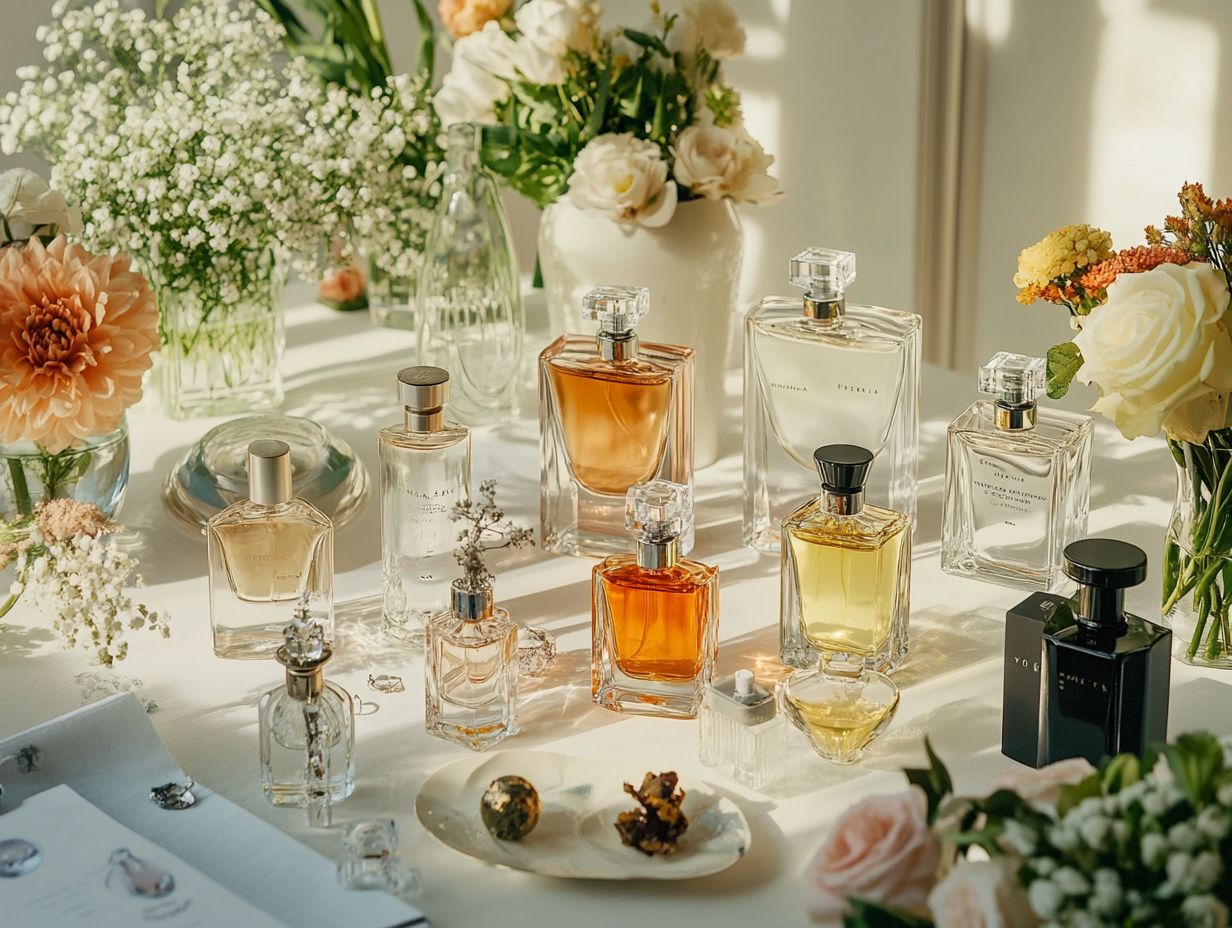
Adhering to the established guidelines for wearing perfume can significantly enhance the fragrance experience, ensuring that the scent is both appreciated and suitable for the occasion.
Tips for Proper Perfume Application
For a successful application of perfume, it is essential to focus on key strategies that enhance both the longevity and perception of the selected fragrance.
This includes applying the scent to pulse points, such as the w wrists, neck, and behind the ears, where body heat assists in radiating and amplifying the aroma throughout the day. For optimal results, moisturizing the skin prior to application can effectively lock in the fragrance, ensuring it lasts longer and delivers a richer scent. Applying perfume immediately after a shower can further improve absorption, resulting in a more pronounced aroma.
Additionally, it is important to refrain from rubbing the fragrance after application, as this can disrupt the delicate balance of notes within the perfume. To elevate a signature scent, one may consider layering complementary fragrances to create a bespoke olfactory experience that truly reflects individual style.
Choosing the Right Perfume for the Occasion
Selecting the appropriate perfume for a specific occasion requires a careful consideration of personal style alongside the context in which the fragrance will be worn.
Factors such as the time of day, the season, and the nature of the event significantly influence which scent may be deemed most suitable. For example, during warm summer evenings, lighter floral or citrus-based fragrances can evoke a sense of freshness that aligns with the season, while richer and more intense scents are often more fitting for colder months or under the subdued illumination of a starry night.
It is important to recognize that stronger perfumes typically possess greater presence, making them particularly well-suited for glamorous nighttime events. This understanding may guide individuals in making selections that resonate with the desired mood. In contrast, for daytime occasions, opting for subtle and neutral fragrances can create an inviting yet understated atmosphere, allowing one’s personal style to be expressed without overwhelming others.
Ultimately, making informed decisions based on these various considerations enables individuals to curate a signature scent that not only complements the occasion but also reflects the essence of their identity.
Don’ts of Perfume Wearing
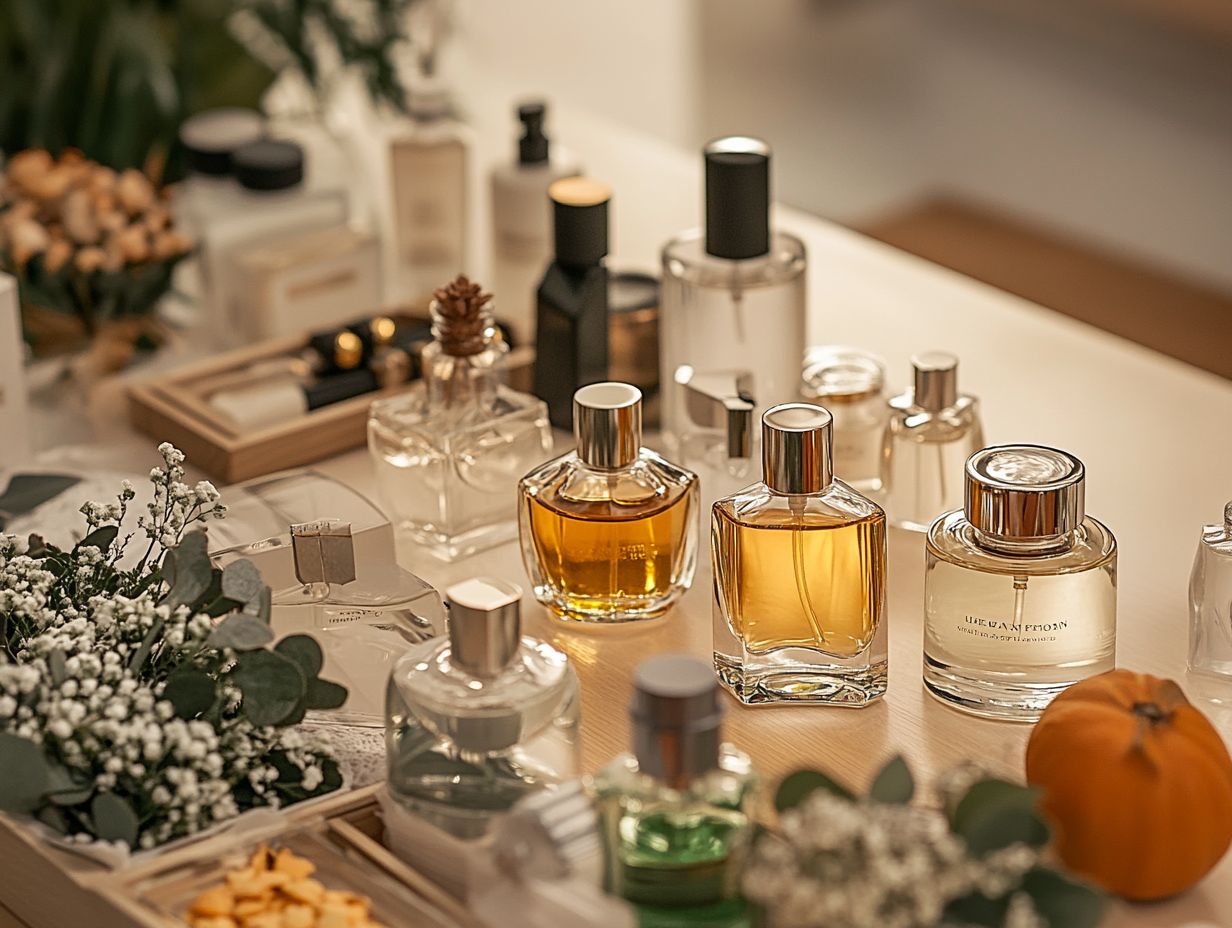
While numerous effective practices exist for applying perfume, it is equally important to be aware of the common mistakes to ensure a pleasurable scent experience.
Mistakes to Avoid
Avoiding common mistakes in fragrance application is essential for creating a pleasant scent experience that honors both personal style and the preferences of others.
One of the most prevalent errors is the over-application of fragrance, which can be overwhelming to those nearby; a subtle scent often leaves a more lasting impression. It is important to consider the context in which the fragrance will be worn; a bold, heavy scent may be unsuitable for more intimate or professional environments.
Additionally, testing the fragrance on one’s skin prior to full application can provide insight into how it interacts with individual skin chemistry, potentially leading to different outcomes than those experienced in the bottle. Adopting a mindset of trial and error allows individuals to learn from previous fragrance choices, refining their selection process and ultimately achieving a signature scent that aligns seamlessly with their identity.
Considerations for Sensitive Noses
When addressing the topic of fragrance, it is imperative to consider individuals with heightened olfactory sensitivity to ensure a comfortable sensory environment for all parties involved.
Selecting scents that are both subtle and soothing can significantly enhance personal comfort and facilitate positive social interactions. Individuals with heightened sensitivity may experience adverse reactions to strong fragrances, which can manifest as headaches or respiratory discomfort.
Consequently, it is advisable to choose milder scents, such as lavender or chamomile, which can foster a calming atmosphere without overwhelming the senses. Additionally, opting for natural essential oils over highly synthetic fragrances is recommended, as they tend to be less irritating.
Furthermore, layering fragrances with lighter floral or fruity notes can create a harmonious blend suitable for various environments, including home, workplace, and social gatherings, while still respecting the preferences of those with sensitive noses.
Perfume Etiquette in Different Settings
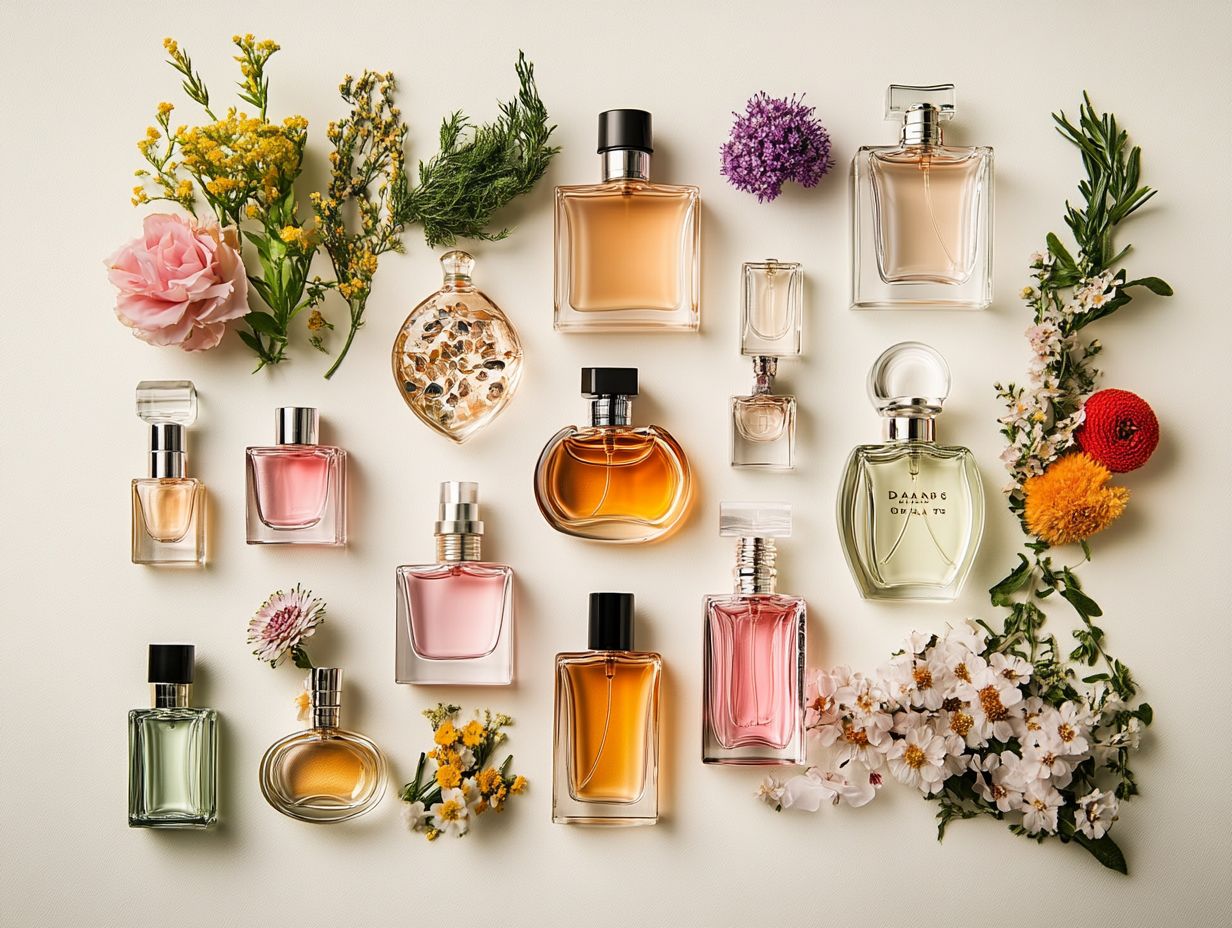
Understanding perfume etiquette across various settings is essential for fostering a positive atmosphere and ensuring that one’s fragrance enhances the overall experience rather than detracts from it.
Workplace Etiquette
Workplace etiquette regarding fragrance is a nuanced issue, as it can substantially impact colleagues and the overall work environment.
In navigating this sensitive topic, it is crucial to recognize that while personal expression through scent can enhance individual style, it should not compromise the comfort of others. Light and neutral fragrances are generally the most appropriate choices, allowing for personal expression without overwhelming the senses of those in proximity.
Currently, fresh and clean scents, such as citrus or soft florals, are increasingly favored in professional settings, as they promote a sense of calm and positivity. Striking a balance between maintaining one’s unique scent identity and adhering to workplace norms is essential to avoid potential misunderstandings and foster a more harmonious atmosphere for all employees.
Social Etiquette
In social settings, fragrance significantly contributes to creating a memorable impression; however, adherence to social etiquette is imperative to ensure that this impression remains positive.
The selection of an appropriate scent can greatly influence the atmosphere of an event. For instance, a light floral fragrance may be more suitable for a daytime gathering, while a warm, spicy note could enhance an evening affair. It is also essential for individuals to be mindful of those around them, as not everyone may share the same appreciation for particular fragrance notes. Sensitivities to strong scents can result in discomfort or distraction during important conversations.
By exercising consideration and selecting fragrances that are not overpowering, individuals can foster a harmonious environment, allowing all attendees to enjoy the occasion without the unintended consequences of olfactory discord.


